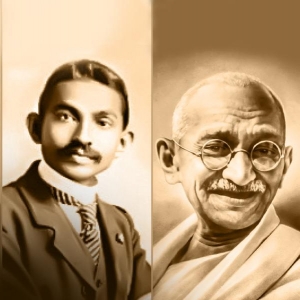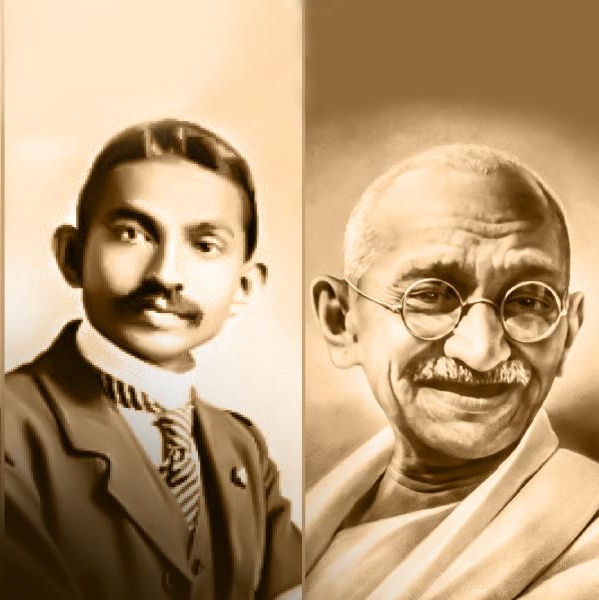

The concept of spirituality in politics is profound, especially in the Indian context, where political ideals often intertwine with the ideas of power, hatred, and violence. When the opposition leader of India speaks about the "politics of love" and "listening to the people," he brings forward an ethos that seeks to move beyond the traditional power dynamics, aiming for a more compassionate and inclusive governance. This approach reflects a deeply spiritual dimension of politics, grounded in values like empathy, humility, and connection with the masses.
Michel Foucault, the French historian, introduced the term political spirituality in 1978. Michel Foucault's concept of political spirituality, particularly framed as the "will for alterity," is a profound exploration of how power, subjectivity, and resistance are intricately connected. While much of Foucault's work centres on the ways power functions through systems, institutions, and social norms, his idea of political spirituality ventures beyond the conventional boundaries of politics. It advocates for a transformative engagement that reshapes both the individual and society on a deeper, more ethical level. It is not about religious spirituality but rather about cultivating a profound ethical commitment to questioning established power dynamics and envisioning alternative ways of being and organising life in society. His vision calls for more than resistance to oppressive structures; it is about creating a new political reality grounded in ethics, self-reflection, and a will to embrace otherness ("alterity").
In India, spirituality has historically played a significant role in political movements, especially during the freedom struggle led by Mahatma Gandhi. His principles of Ahimsa (non-violence) and Satyagraha (truth-force) were rooted in a moral and spiritual understanding of human dignity. When the opposition leader emphasises "politics of love," it echoes this Gandhian legacy, where politics is seen not just as a means of acquiring power but as an ex
The essence of political leadership in today's world is grounded in the idea that people follow those who lead with vision and purpose. They support the ideas and dreams of a leader, trusting in their ability to shape a better future. However, in the current political landscape of India, many leaders seem disconnected from the people they claim to represent. These leaders often speak for hours at rallies, moving from one venue to another, addressing crowds but without truly listening to the voices of the people. They often project themselves as all-knowing, highlighting their own achievements and promoting plans that frequently serve the interests of the wealthy and influential.
What is missing, however, is a genuine connection with the common people. True leadership requires humility and openness—the willingness to listen. In a country as diverse and complex as India, understanding the real struggles, dreams, and hopes of the people is not just important, it is essential. Leaders who fail to listen remain out of touch with the lived experiences of ordinary citizens. "Politics of listening" is about more than just hearing words; it is about forging meaningful relationships built on trust and mutual respect. It requires embracing people with love, compassion, and understanding. Leaders must be patient, attentive, and sensitive to the unique realities faced by individuals across the nation. Only by listening and engaging with the public can leaders truly inspire and mobilise the nation toward collective progress. This kind of leadership is not just a political strategy; it is a moral imperative. It calls for a deep commitment to serve the people rather than merely speaking to them. It is in the act of listening that a leader can genuinely understand the needs of the nation and guide it with wisdom and empathy.
When a politician rises to speak in Parliament or the legislative assembly, it is not merely their individual voice that is being heard. Every time a politician addresses their peers, the voices of thousands, if not millions, resonate through their words. The members of Parliament or the legislative assembly who listen to these speeches are not just hearing the individual speaking; they are, in effect, listening to the diverse voices of an entire community or region. This underscores the sacred duty that politicians hold in being the true voice of the people—speaking not for themselves but on behalf of those who may not have the platform to express their own concerns.
To achieve this, a politician must be deeply attuned to the realities of their constituents' lives. They must engage with the public, listen to their stories, and understand their struggles and aspirations. Without this connection, a politician risks becoming disconnected from the very people they are meant to serve. In an ideal democracy, every word spoken in Parliament should echo the authenticity of lived experiences, with the weight of genuine public sentiment behind it.
This attitude calls for the destruction of the ego and the transcendence of political divisions, rivalries, and personal ambitions. It requires a focus on collective well-being rather than individual gain. Mahatma Gandhi exemplified this ethos in both his life and leadership. Upon returning to India from South Africa after his legal studies, Gandhi initially dressed in the suits and coats that marked his status as a barrister. However, a pivotal moment changed his perspective and deepened his commitment to the people he sought to serve.
One day, he observed a poor woman washing her sari in a river. She held one end of the fabric to her body while scrubbing the other, lacking even a spare piece of cloth to cover herself. This simple yet profound encounter sparked an internal transformation in Gandhi. He realised that to genuinely connect with the masses and advocate for their rights, he needed to shed the trappings of privilege and embrace simplicity. He challenged himself to live as the poorest among them lived, and from that day forward, he adopted the practice of wearing minimal clothing—often just a loincloth and shawl. This decision was not just symbolic; it was a powerful act of solidarity with India's impoverished millions. Gandhi's new way of dressing reflected his desire to align his own life with the lived realities of those he sought to uplift, and it became a core part of his political and spiritual philosophy.
Gandhi's choice to strip away his ego and external symbols of status speaks to a deeper principle: the need for leaders to transcend their personal identities and immerse themselves in the collective struggles of the people. In the concept of political spirituality, true leadership is marked by the ability to set aside one's own dreams, ideas, and aspirations in favour of embracing and elevating the dreams, ambitions, and aspirations of others. This is not merely a superficial gesture of goodwill but a profound ethical commitment to live for the collective good, to serve the needs and desires of the community, and to work towards the realisation of a shared vision for the future.
The essence of political spirituality is not just about leadership through action but leadership through empathy, where the aspirations of others become the guiding force behind every decision. Through this, they commit to building a society where the collective good is paramount, and every individual feels that their voice has been heard, respected, and integrated into the larger narrative of the nation.